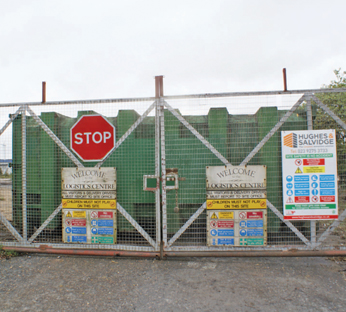As part of the Police, Crime, Sentencing and Courts Bill 2021, the Home Office proposes to create a new offence for England and Wales, to combat what the authorities call ‘unauthorised encampments’.
An accompanying power will allow the police to seize property (including vehicles) where individuals reside or intend to reside on land with a vehicle. More details on the Home Office website.
West Police and Crime Commissioner (PCC) John Campion welcomed the proposal to give more power to the police to remove intentional trespassers, as an amendment to the Criminal Justice and Public Order Act 1994.
He said: “Although a nomadic lifestyle is an alternative way of living which should be respected, this needs to be balanced with the needs of communities. Communities have the right to enjoy their neighbourhood without the disruption that intentional trespassers bring. Trespassing can be a reoccurring problem for landowners, causing nuisance and unnecessary expense to deal with the issue. These changes mean that action can be taken more quickly and efficiently to deal with the problem, giving some reassurance to landowners.”
CEO of the Traveller Movement charity Yvonne MacNamara said: “We have been clear from the outset of this consultation that criminalisation of homeless Gypsies and Travellers is completely unfair and unnecessary. This hostile move will cause untold hardship to the most vulnerable Gypsies and Travellers, and will further inflame community tensions, leading to many becoming homeless.
“The Home Office received a record 26,337 responses to this consultation, the vast majority of which did not agree with criminalisation. How did this consultation pass an Equality Impact Assessment? It is simply unbelievable that the Home Office intends to move ahead with this draconian law.”
Home Secretary Priti Patel said: “This new offence will enable the police to fine or arrest those residing without permission on private or public land in vehicles in order to stop significant disruption, distress or harm being caused to the law-abiding majority. I am delivering on my commitment to give the police the powers they need to tackle these encampments swiftly and effectively.”
Police will be able to consider when enforcing the law, interference with access to utilities like water, gas and electricity, and environmental damage such as excessive noise pollution or littering. New provisions will also mean that people directed away from land must not return for 12 months. This follows Government consultations on the controversy in 2018, and 2019.
As featured in the September 2106 and October 2020 print editions of Professional Security magazine, car parks, business estates, and playing fields are among open areas that may be camped on, those camping sometimes leaving mess and litter, and being anti-social to neighbours and seeking to intimidate any security staff. It’s also meant a rash of fortifying of empty property (pictured: London Riverside business improvement district, Rainham), typically with concrete blocks, bales or fencing, to keep caravans off.









